This is Tim: Cook at the Goldman Sachs Conference
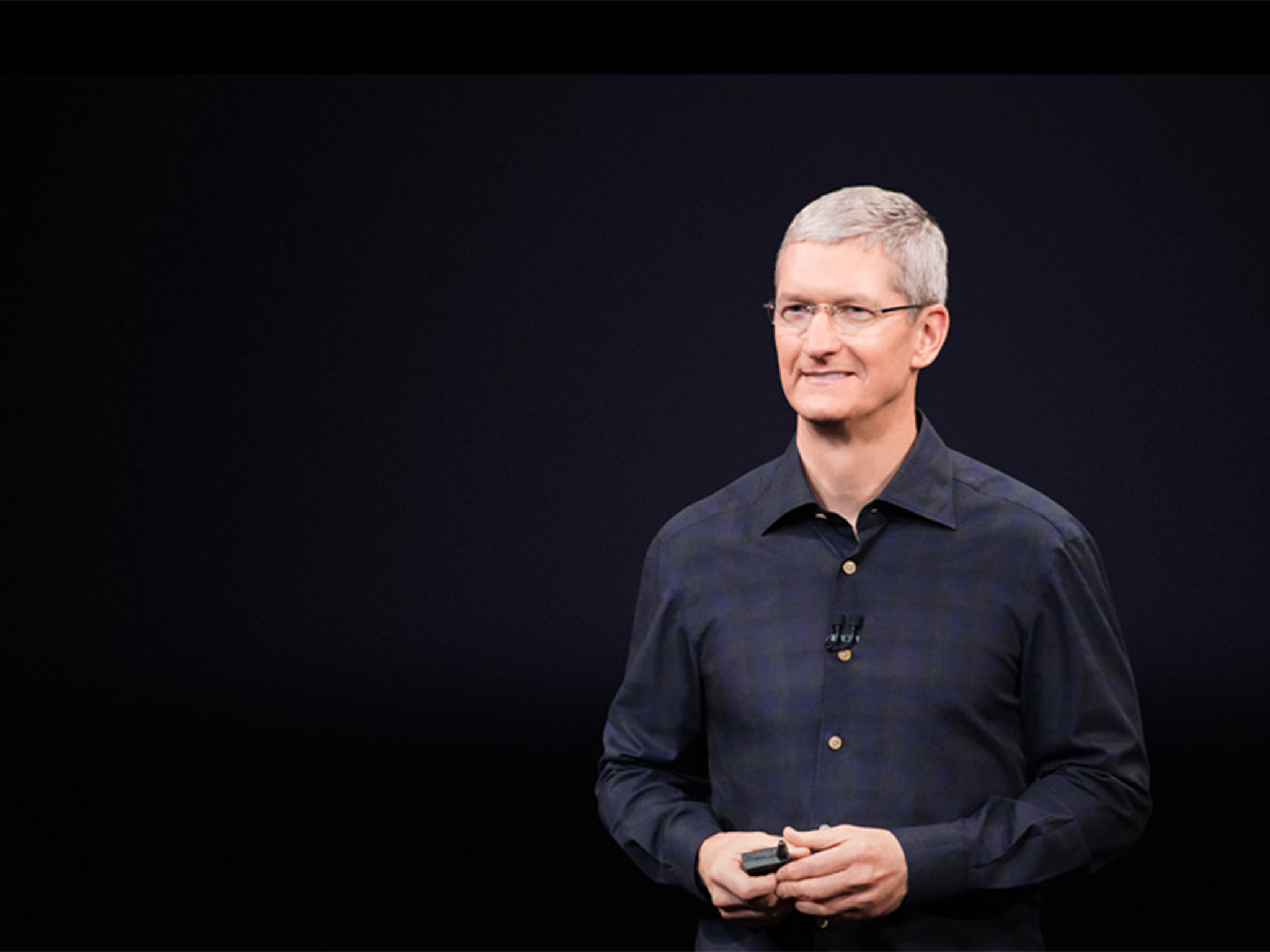
iMore offers spot-on advice and guidance from our team of experts, with decades of Apple device experience to lean on. Learn more with iMore!
You are now subscribed
Your newsletter sign-up was successful
Ed: Tim Cook spoke at length during today's Goldman Sachs conference on Apple's insane first quarter, China, the Apple Watch, and so much more. Here's a transcript of his remarks, with occasional interjection by the Goldman Sachs interviewer.
On the strongest quarter ever
Y'know, we're fortunate to have a good year, but maybe the most important answer to that first would be that we don't believe in such laws as laws of large numbers. This is sort of, uh, old dogma, I think, that was cooked up by somebody and Steve [Jobs] did a lot of things for us for many years, but one of the things he ingrained in us [is] that putting limits on your thinking [is] never good.
And so, we're actually not focused on numbers, we're focused on the things that produce the numbers, right?
And so if you look at the accomplishments over the last year: We're a product company. And our most important thing is to make great products, and we feel great about how we did last year. We came out with iOS 8, which was absolutely our largest release since the App Store was created. We came out with Yosemite, which is our latest Mac operating system with a total new look, lots of new apps. We had the biggest advancement ever in the iPhone, with iPhone 6 and 6 Plus, and from an operational excellence point of view sort of hit the ball out of the park on the ramp and rolling of that to countries.
We brought Touch ID to the iPad — and Touch ID was a really foundational technology that we invented and began to roll out the previous year. And we're really happy to get that into the iPad, along with making it even thinner and lighter and more powerful for people.
And the Mac... the Mac kept humming. And, y'know, despite the industry being really awful, the Mac has been growing and gaining share for a long time. And so, on the product front, lots of things to feel great about.
As important as those are the things that we do to set ourselves up for the long term. And last year, if you look at some of those things that we'll produce over the coming years: We developed our own programming language, called Swift. And what Swift does is significantly make our ecosystem even stronger, because you can write apps even faster, really complex apps — you and I could even write an app.
iMore offers spot-on advice and guidance from our team of experts, with decades of Apple device experience to lean on. Learn more with iMore!
[Laughing.] Mmm, I don't know about that.
No, I'm actually serious!
We came out with HealthKit. And HealthKit, I think, is going to be profound, because it enables you to take all of the information from different apps, and if you desire to, you can share that information with your physician. You can share it, or you can place it in way that you can then begin to correlate the data and find out some pretty interesting things about your health and be able to monitor it.
We also came out with HomeKit, and HomeKit enables you essentially to control your home with Siri. And so whether it's lights, or your door, or your thermostat, or whatever it may be.
We also came out with CarPlay. And so we've taken iOS and extended it into your car, into your home, into your health — all of these are really critical parts of your life, and all of us... none of us want to have different platforms in different parts of our lives. We want one, seamless kind of life. And so I think that is huge for our future. It's not every day you can plant that many foundational technologies.
We also did a lot of things to further our global footprint. And so if you look at what we've done in China, we've opened more stores there, we've opened a lot more distribution there; through the world, we've opened almost 20,000 new points of sale. We've opened 27 new Apple Stores — a lot of flagship stores. We extended the online store into even more places. And so, the emerging markets, we saw phenomenal growth, with over 50 percent. You know, these are huge numbers and we have over 50 billion dollars of revenue in emerging markets, including 38 [billion] in China for the calendar year. So that was certainly a high point.
We partnered with China Mobile. We also partnered with IBM to extend our reach into enterprise. And, y'know, I think we'll begin to see that relationship bear fruit this year as the apps have started to roll out and so forth.
And y'know, for everyone at Apple, we're all there to make great products, and really enrich peoples' lives, and we believe in leaving the world better than we found it. And so, along those lines, our greatest contribution to society will always be through our products, because we can empower people to do some incredible things there, but we also put our energy into a program called ConnectEd, and are working with the administration on bringing our technology to kids in very underserved schools that desperately need technology.
We partnered with the Global Fund, with a focus on eliminating the transmission of AIDS from mother to child, made a huge — we're up over a hundred million dollars in donations here, and this saves millions of lives.
On the environment
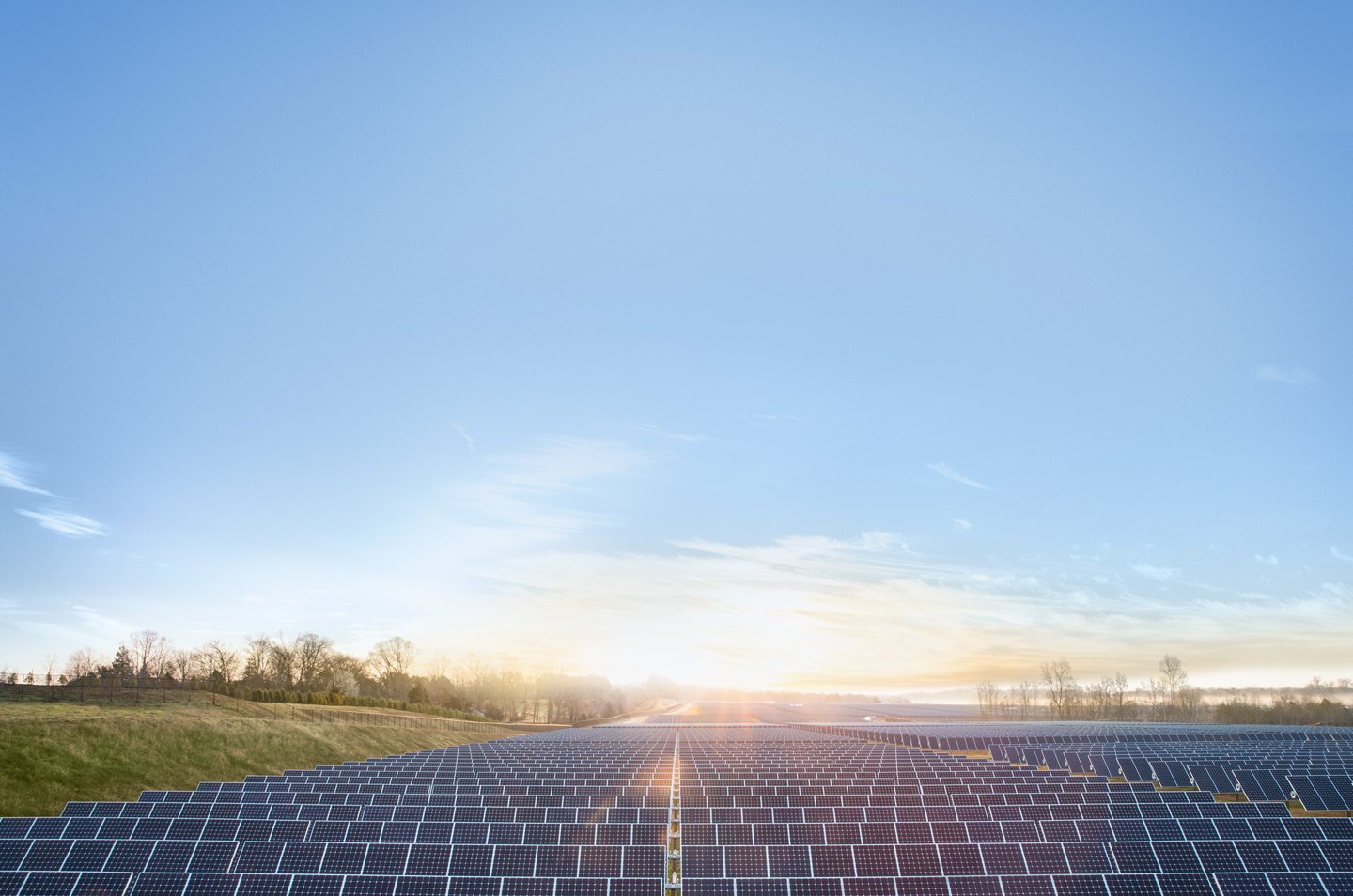
And we did a lot for the environment last year, as well, adding on to some things that we're doing, and I'd like to spend just a second on this — we know, in Apple, that climate change is real. And our view is that the time for talk has passed, and the time for action is now. And we've shown that with what we've done. And so we're now running all of our data centers, which require lots of energy for those of you that understand data centers, all of them are run off renewable energy.
And just today, we're announcing our biggest, boldest, and most ambitious project ever: We are building — we're partnering with First Solar — to build a solar farm in Monterey County, so not too far from here. It's 1300 acres. It's enough power for almost 60,000 California homes. And it's enough to provide renewable energy for all of our new campus — that you and I were just speaking of a few minutes ago, Apple Campus 2 — every other office we have in California, all 52 retail stores we have in California, and our data center in Newark. And so, it's an 850 million dollar investment.
And I think, just to make this point, because I know this is a financial conference, and I'm sure some of you are interested in, well, "Is that a good use of funds or not," and, y'know: quite frankly, we are doing this because it is right to do, but you may also be interested to know that it's good financially to do it. We expect to have a very significant savings because we have a fixed-price for the renewable energy, and there's quite a difference between that price and the price of the brown energy. And so we're thrilled to continue on this course of doing things that really leave the world better than we found it.
On Apple Watch
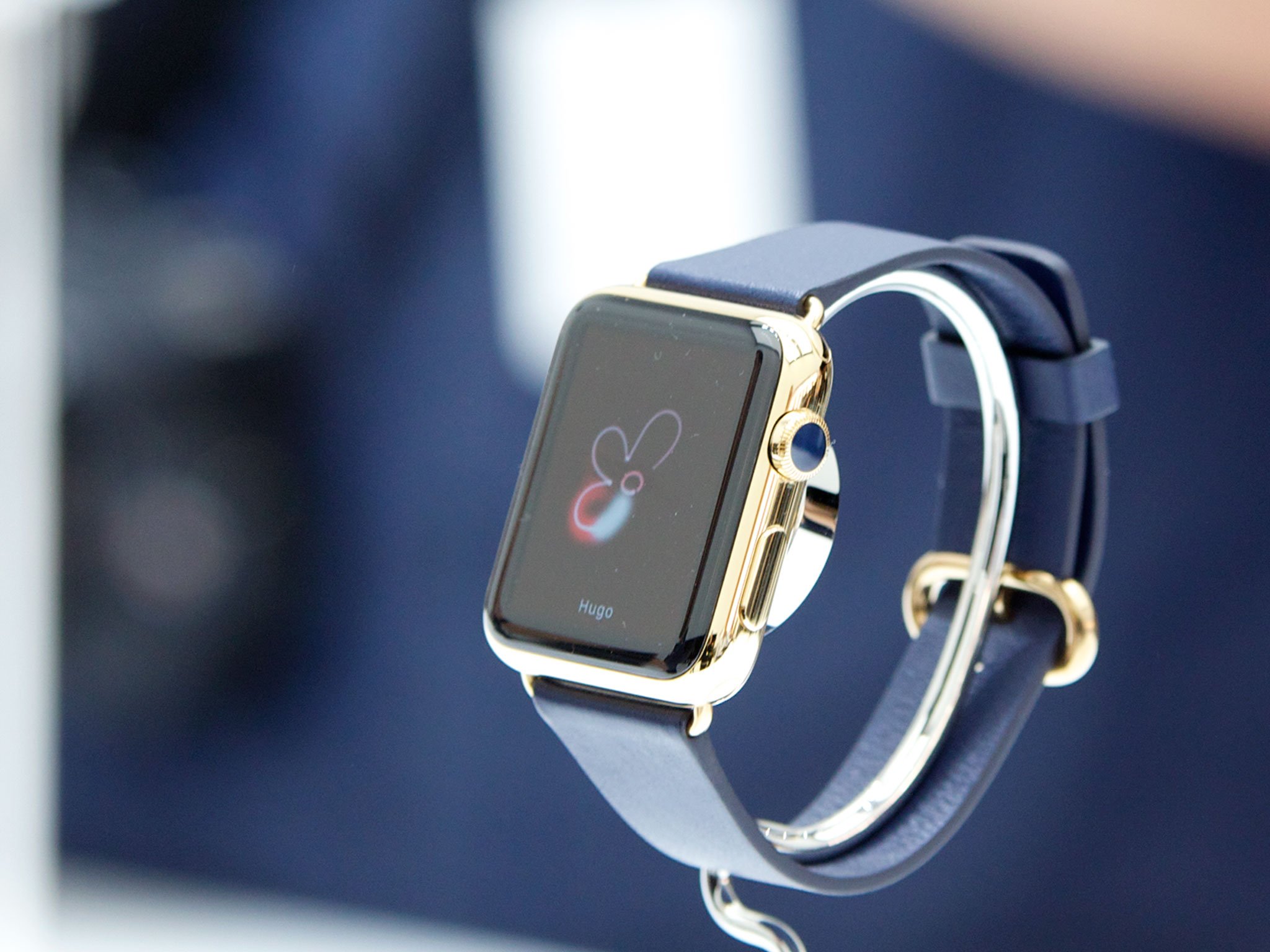
If you think about the, for those of you can remember, the MP3 industry, before the iPod — we weren't the first company to make an MP3; there were lots of companies in the... you may not be able to remember that, but there were lots of them out there. They weren't used very much. They were fundamentally too hard to use, and the user interface was really bad. You almost needed a PhD to use these. They weren't, they're not memorable. They didn't really move the dial.
And the tablet business was kind of like this, too. There were lots of tablets shipping when the iPad came out. But there was nothing earth-shattering. There were very niche-y kind of applications; you probably weren't using one like you're using now.
And so I see the smart watch category very much like that. There are several things that are called "smart watches" that are shipping, but I'm not sure you could name any. Maybe you could. I'm not sure the audience could name very many. But certainly there's been none that have changed the way people live their lives.
And so what we want to do at Apple, that's our objective: We want to change the way you live your life. And just like this iPad has changed the way you work, and hopefully the way you live, and the iPhone has done that, we see the Apple Watch doing that.
I've been using one, and I'm actually wearing one now — but I wear it all the time, actually. And I think one of the biggest surprises people are going to have when they start using it is the breadth of what it will do.
And so, obviously it's a precision time piece. And just like you're wearing a watch and you probably think it looks really cool — I'm not sure I do, but...
[crowd laughter] My wife gave it to me, so it stays on my wrist.
The look of this is fantastic. And of course there's lots of different ones. And so you may look at this and you might want a different color band, or a different type of band, or you may want an 18 karat gold one, or whatever you may want — the variety is incredible, the customizable nature of it is incredible.
You'll also find that there are some new, innovative ways to communicate that you didn't have before. And so I constantly use Siri with my watch, and ask different things, and all of a sudden, y'know, it's just there. You can do things like get notifications across your watch.
And so right now, if you're like most men, you carry your phone in your front pocket. I see too many men in this audience, by the way, there needs to be a lot more women, a lot more diversity here.
[clapping]
Thank you. But most men do that. They put it here. And so you can imagine, in a meeting, how distracting it is to watch everybody do this all the time. [Miming pulling an iPhone out of pocket.]
And here, it's kinda little subtle. And if you're interested in keeping up with the sports score to the financial markets to whatever it is, it's like this, the Watch knows you're looking at it, and it comes on. If I'm not looking at it, the Watch is off. Which can be very important, right?
And so there's so many things like that, and the third-party apps — the things third parties are working on? — I'm super excited about. And so I think it's going to be, everybody's going to have their favorite thing. Just like when the App Store came out, and you remember the tagline, "There's an app for that?" And the way you felt with your favorite apps, and so you're going to have a feeling like that.
I use it in the gym constantly to track my activity level, my exercise, how long I'm exercising; if I sit for too long, it will actually tap me on the wrist to remind me to get up and move. Because a lot of doctors believe that sitting is the new cancer, right? And arguably activity is good for all of us. And so if you haven't moved within the hour, ten minutes before the hour it'll tap you.
And it's been amazing watching this at Apple, because you'll be in a meeting — and we have a lot of employees now that are using the watch — and about ten minutes before the hour, everybody will start standing up.
[laughter]
And it took a little while to get used to, but it's actually very good. And so, there's just an enormous number of things that it will do, and I think you're going to find it something that you're going to think, "Wow, I can't live without this anymore!" And you're gonna be deciding you may not want to give up that real estate for that particular watch anymore.
So Siri's going to be on my wrist, right?
Siri's on your wrist.
So I'm gonna not be able to get away from someone yelling at me, ever. [Laughter.] Okay.
On the significance of Apple's software vs hardware
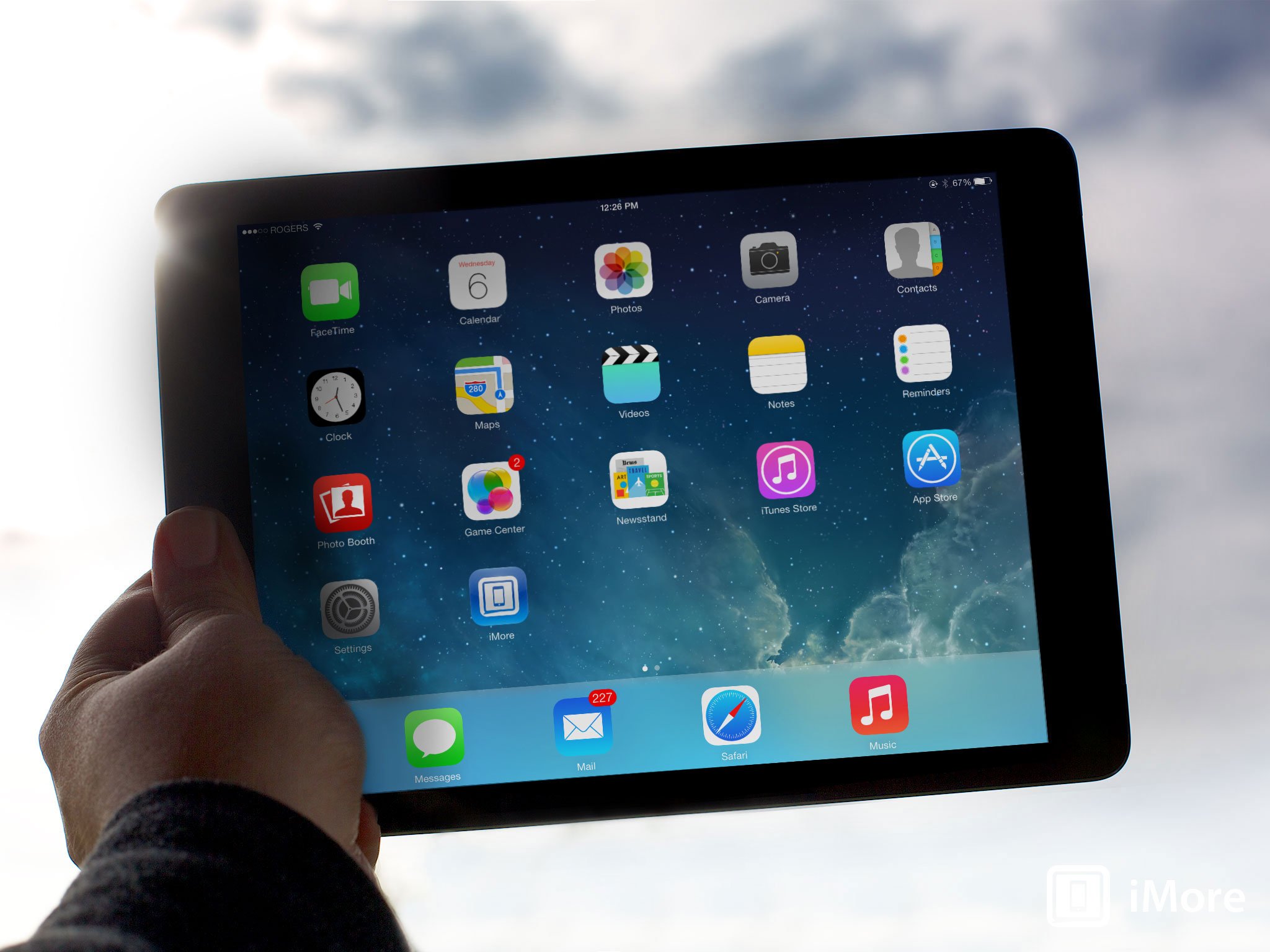
You know, it's been... we haven't been a hardware company for... since I've been with Apple. And I'm not a historian, so I can't tell you about the beginning of time, but I don't really think Apple was ever a hardware company, even at the beginning of time.
I think people that know Apple well and are users of our products, I don't believe any of them would call us a hardware company. When they buy a Mac in the early days, and today, they're buying an experience, and that experience is the integration of hardware, software, and services.
And that's clearly true with the iPhone, and iPad, it's true with the iPod. You can imagine the iPod without the iTunes Store — or, you actually can't imagine it, probably, anymore. So it has always been a key part.
Now, financially we report services together, and the sum of all these things which, uh, things are included in that like the App Store, and AppleCare, and so forth, and our media sales — this adds up to, like, 18 billion for the last year. However, if you really think about it, when we sell an iPhone, there's a great deal of value in the operating system, and then there's value in the updates that come thereafter that keep the phone fresh, but we don't spend any time internally apportioning all of that to software and services.
But if we did, that category would be even larger than it already is. And so the net of all that is that the magic in Apple is that we do all of them: hardware, services, and software. And the real magic comes out where they integrate. And sort of owning the whole widget is the reason we're able to deliver the kind of customer experience we do.
All of these will always be important to us. They're all important. It's not that one is more than the other. It's doing them all, and doing them all at a very high level, and integrating them. It's what produces the magic.
On Apple Pay
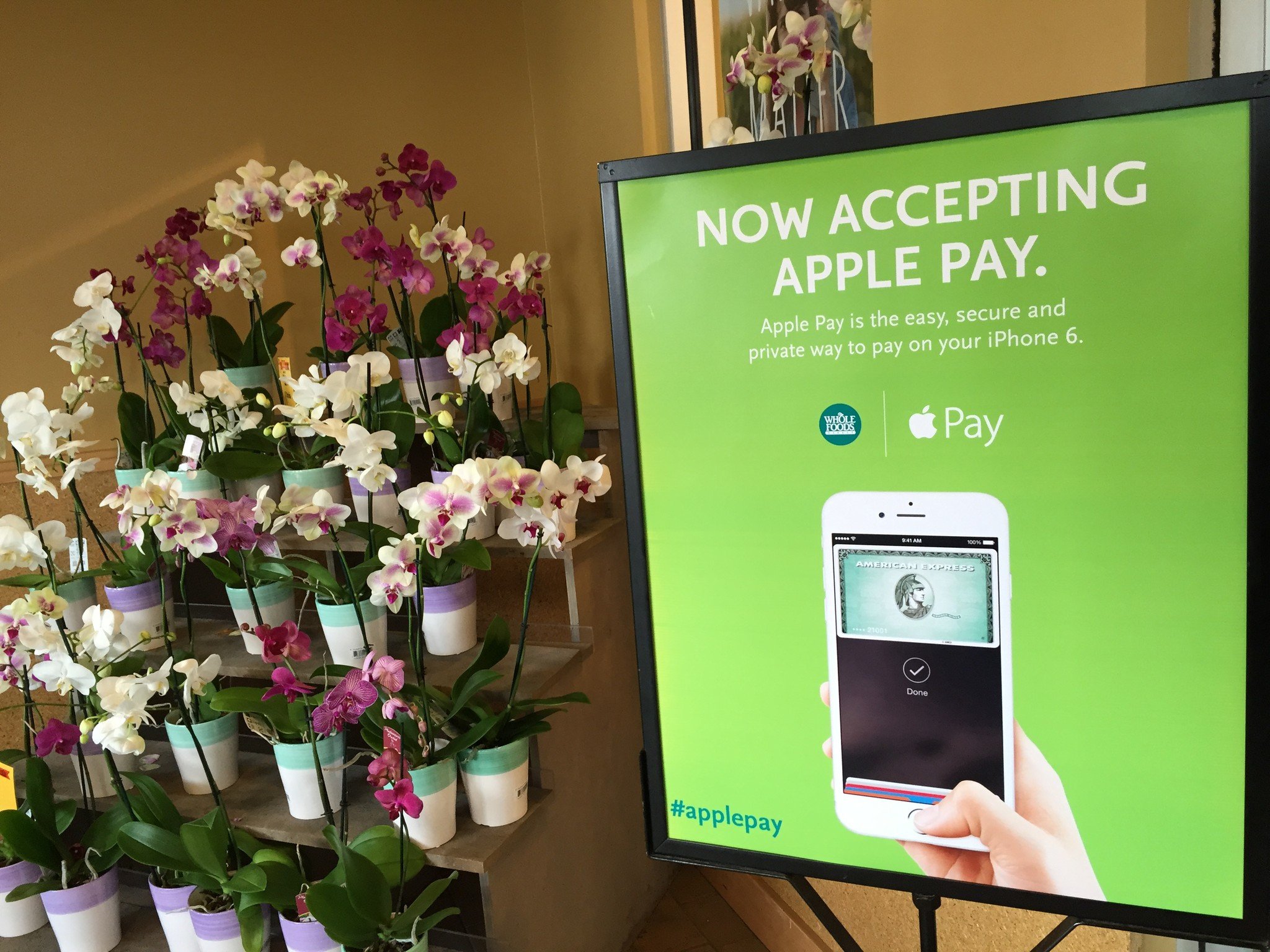
It's going faster than I thought it would — much faster, actually. The reason is that, the reason I thought it would be a bit slower than this is that when you're going into the holiday season, most retailers don't want to change anything around their point of sale. And we found, however, we found a lot of significant reception to get it going quickly. And, y'know, by December, two out of three dollars that were spent in stores with contactless payments, on contactless payments — were Apple Pay. And this is by the three major networks: AmEx, Visa, and Mastercard. And so it's essentially the overwhelming vast majority of the market.
But maybe what's even more significant than that is that there's so many retailers that are approaching us about getting signed up. We had the banks see at a very great level. We have 2000 banks and credit unions now going, and more coming, although that's well over 90 percent of the market. And so the focus in the United States is very much on merchants.
We did a walk around, earlier, around the hotel, and if you do that, you'll find that you can buy a coffee at Peet's, you can buy your lunch at McDonald's or Subway, you can buy cupcakes at this little cupcakes small business place down a few blocks from here, you can go to Foot Locker and buy the latest Nikes, you can go to Bloomingdales.
And so, from sort of a large company with Bloomingdales, Macy's, to a toy store called Jeffery's a few blocks from here, many many retailers. And in fact there's a vending machine in the lobby that you can use — and now there's 200,000 of these around the U.S. — that you can buy water, and sodas, and snacks, and these types of things. They're also in laundromats. And so the rollout is going much faster than I would have thought, and I think it's truly profound.
There are also some retailers that are taking it even further, where they're innovating around their own customer experience. Like Panera Bread now allows you to order in advance, you can go in and pick up your lunch, made, it's done before you get there, and you're paying with Apple Pay [in-app]. And so they're trying to kind of taking it all further, and I love to see these.
Jet Blue just announced this morning that they will accept Apple Pay beginning mid this month, and they're going to roll it out across all of their flights between now and three months or so from now, and you can buy from your snack to your drinks and all the other things you can do on planes, your entertainment et cetera.
We think all of these things are great, and I see them happening faster and faster and faster. This is an example, back to your other question [on software and hardware integration], where this was only possible because we could control and design the hardware, the software, and the service. You can imagine trying to do this with several different companies, you would be pulling your hair out doing it. You don't have much left, but...
[Laughter.]
But you'd really be doing that.
Yep, some of us are follically-challenged.
On not collecting Apple Pay shopper data
Well, for us it's a value. It's first and foremost a value. We believe that customers have a right to privacy. And that the vast majority of customers don't want everyone knowing everything about them. And so that's first and foremost what it's about.
When we make money when you buy one of those [items via Apple Pay], we'll make a little bit of money. But it's a simple, straightforward business model. You are not our product. That is our product. And so that's the way we kind of look at the world, and we think that that's the way customers want us to look at the world.
And so if you take this and look about the areas that are emerging now, where on your smartphone, there's your financial data — we think that this is even more true in this world — there's no reason why anyone, or us, that we need to know where you're buying something, what you're buying, how much you're paying, I don't want to know any of that. It's none of my business, frankly.
And so this is not how we want to make a living. We don't think you in the long term would want us to do this, either, by the way. We think customers will rebel on this. I think that this is the same way, back to the HealthKit that we talked about earlier, you're going to want to keep your own health information. This is not something you want to be monetized by somebody.
And so we think that customers, over the arc of time, will more and more go to people they trust with their data. Because it's not just sharing one thing that's going on now. It's the people unknowingly sharing a number of things in their lives and where somebody can now connect those dots and find out ten things about them that they really didn't want anybody to know, that nobody deserved to know.
And so I do think over time, more and more people will appreciate that, and not only just appreciate it, but demand it. So for Apple Pay, for us, it was about doing something simple; we knew that it had to be easier than pulling out your wallet and taking out a card, there was nothing out there that was easier than that. Nothing had really taken off. We knew that it had to be secure, because all of us are tired of people breaching our credit cards, and going online and having to reput in all of these numbers everywhere. I'm sure everyone in this room, or almost everyone in this room at least once that's happened to. It's happened to me three times.
With Apple Pay, we don't — we never give the merchant your credit card number. We don't even have it. We're essentially making up a proxy for each individual transaction which prevents the passage of this number. Think about it for a minute, how secure can a card be when it has your number on the front, and this thing called a security code that anybody can see on the back!
[Laughter.]
How secure is that?!
Yep.
Y'know, and so we knew it had to be secure and, as I've said before, we felt it had to be private, because we think that that's between you, and your bank, and the merchant. And we're not a party to it. We're facilitating the transaction.
And so I'm super excited. I think we have come up with something that people love to use. The guys are telling us — Panera Bread told us that 80 percent of their mobile transactions now, in store, are on Apple Pay. And so in the stores we're in, it's even higher than the average across the total, obviously, because that includes stores that we're zero in, because we're not accepted yet.
And so I couldn't be happier about the speed of — I would have never predicted that I could be sitting at this conference in February, after launching in October, and we would be where we are now.
On the demand for a low-cost iPhone
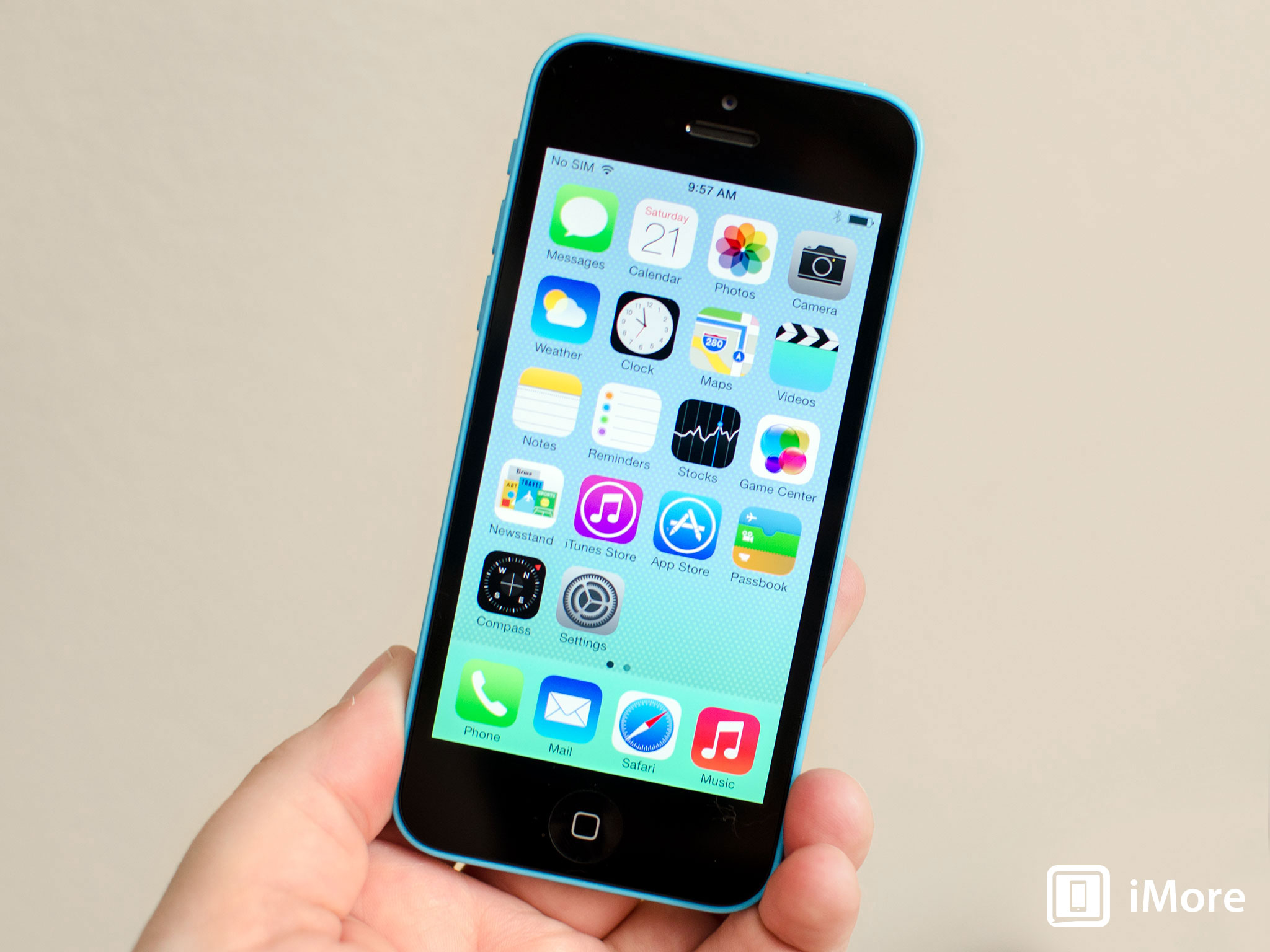
We've always believed that our role in life is to make the best, not the most. And sometimes, those spheres do intersect, where you can make the best and the most, and sometimes they don't.
Last quarter, they probably intersected, or came really close. I haven't seen the latest estimates. But first and foremost, our job in life is to make the best, and we've never lost sight of that. And so what we've said is, we want to give people a good value and if we can develop something that's really great, that costs even less than what we're offering today, which we think is really good value, then we would do that.
But what we won't do is do something that's second-rate, or that's only a good product, not a great product. Because that's not what Apple stands for, and that's not what we think customers want.
And we've found that all throughout the world, there were so many people advising us that we had to do something different in China, that we had to do something different in this country, or that country, that people weren't going to pay for a great product there. Well, let me tell you, it's a bunch of bull! It's not true! People everywhere in this world want a great product. And that doesn't mean that everyone, every single person in the world can afford one yet. But everyone wants one. And so, if we do our jobs right, and keep making great products, I think there's a pretty good business there for us.
And so we stayed true to that, and sort of blocked out the noise of everybody saying, you've gotta do this, you've gotta do that. We're pretty good at blocking the noise out.
On Xiaomi and Huawei competing in the high-cost phone market
You know, our whole life as a company, we've always fought against fierce competitors. In the PC world, it was the Microsoft monopoly. In the smartphone world when we went in, people thought we had no chance against BlackBerry and Nokia. In the tablet world, it wasn't that there was a competitor there, necessarily, but there were people questioning "Why are you doing this product?" And the same kind of thing with the iPod, in a way.
We've always had stiff competition. We'll always have stiff competition. This makes it better. So, no, this is not what we lose sleep over. We think about doing a great product. And we think that if we do that well, that other things will take care of themselves. And so that's what we're focused on.
On Apple's success in China
There's been several things. One is, we've put a lot of investment there. We've invested in a ton of people there, we've invested in stores there, in flagship stores. We're rolling out more stores. We're now at 19 in greater China; we're going to be at 40 by mid-next year. We've brought on 40,000 point-of-sales at our indirect channel partners. We've partnered with top Chinese companies like China Mobile and China Unicom and China Telecom and great services companies like Baidu on search, and Tencent, and Youku.
And so, we've done things with people that really understood China and had desirous services there. Y'know, maybe more than anything, we've put our personal energy into it, and tried to deeply understand the market, and respect it, and it, over time, it begins to work.
Five years ago, we were at less than a billion dollars in revenue. In the last twelve months, we were at 38 billion. But I still think that when I really back up from it, I think we're still kind of not too far from the surface. That country has enormous opportunity. There's such an amazing number of people that are moving into the middle class. It's something like I've never seen in my lifetime before. And so we just put, we opened four new stores in the last few weeks. And these four stores are in cities that have about, give or take, nine million people into the city, larger, much larger in a metropolitan area, and you think about nine million people — this is the size of New York City, in calculation!
Well, small cities in China, though.
Small cities in, not Beijing and Shanghai. Tienzen. Chongqing. Changzhou. Hangzhou. Places that most Americans have never heard of. But they're huge. The scale is still — after traveling to China and studying China for now 30 years — it's still amazing to me.
But there are other countries, though, where we haven't put as much energy, don't understand as well, but on the flip side of that, we have enormous opportunity. And India is one of those. We've started making investments in India, we're growing rapidly in India, but we're on a very small base there. But in some number of years, you could envision India being really significant, too, and should be.
On what's next
The way that we look at this is, first and foremost, we invest in R&D because we know that innovation is the most important thing for us. And investing in R&D means both internal, organic investments, and acquisitions. And so last calendar year, we acquired 17 companies. And we're continuing to acquire where we find skills that are great, technologies that are great, etc.
We also invest in our go-to-market, with our retail stores and our supply chain, and of course the capital that we need to maintain an infrastructure that has operational excellence is not a trivial amount of money, either. And so all of those things are our first priority. It's investing in Apple.
We're fortunate right now when we do that, we have some amount of money left over. And so we realized this a few years ago, and started returning it to shareholders. We started with dividends and buybacks, and we've tweaked that model every year. We've been sort of on a cadence of once a year. We look at it very deeply, very thoughtfully, and we change the program accordingly. We're in the midst of that process right now, and we'll be announcing in April on our earnings call what we will do next.
But as you said, we announced 130 billion [buyback], which, to put in perspective, is the largest in corporate history; we're 103 through that, and we're doing it at a much faster clip than we had announced. We were very bold and very opportunistic and continue to be, and so we'll see what we conclude in April, but y'know, by and large my view is, for cash that we don't need, with some level of buffer, we want to give back. It may come across that we are, but we're not hoarders. I think, I doubt anyone with a 130 billion dollar buyback would say that. So we'll see where we go next.
On the IBM partnership
It's interesting, I think, for both companies, and hopefully [IBM CEO] Ginni [Rometty] wouldn't mind me saying something about IBM, is that when you really look at it, the skills of the two companies are very complementary. And so IBM has very deep knowledge of a number of verticals; Apple doesn't have that. IBM has an enormous amount of field resource; Apple doesn't have that. Apple has incredible devices that enterprises want to deploy; IBM doesn't have that. Apple has an operating system that you can write apps for easily, a programming language that helps do that; IBM doesn't have that.
And so both of us bring a significant amount to this. We want to change the way people work. This is what excites us. Just as we changed consumers' lives, we want to change the way people work. And so when we started thinking about "How do we do this? How do we really do this?" we came to the realization that we didn't know enough about N-number of verticals, and we didn't have all these people on the street, and we didn't have huge numbers of engineers that could write apps that were unique to these [areas].
But we knew that we had to have apps that were at the job level within the enterprise. Not just productivity apps like a presentation app, which is very important in enterprise — we do one, Microsoft does one, you can pick a good one, whichever one you like best — we do a word processor, Microsoft does one, all of those kinds of things exist. Those are general productivity tools.
But when you start talking about the tool for the nurse, the tool for the pilot, the tool for the flight attendant, the tool for the salesperson, the banker. When you're down at that level, you need apps. And so we knew we needed to partner with someone, and we looked around. And it became clear to us that IBM was an outstanding partner. I think Ginni's fantastic. The relationship between the companies is quite good. The engineering teams work well together. And they're extremely complementary.
And so I couldn't be happier with how it's taken off right now. I really think it's big. I don't think — this is not a small thing. Because the truth is, enterprise has not moved to mobility in a big way like the consumer has. There's still so many people stuck at their desks in the enterprise. It's unbelievable when you really think about it.
It's almost like the same thing that happens to kids when they go to school and the school is in an analog world, and the kid is a digital kid, and they have to turn back in time. Many businesses are like that. So the person is living one way at home, and then they're going into work and they're sort of turning back in time. Well, it doesn't have to be like that and it shouldn't be like that.
Good.
And so I'm excited about it. I think it's going to be truly profound.
On the future of the Mac
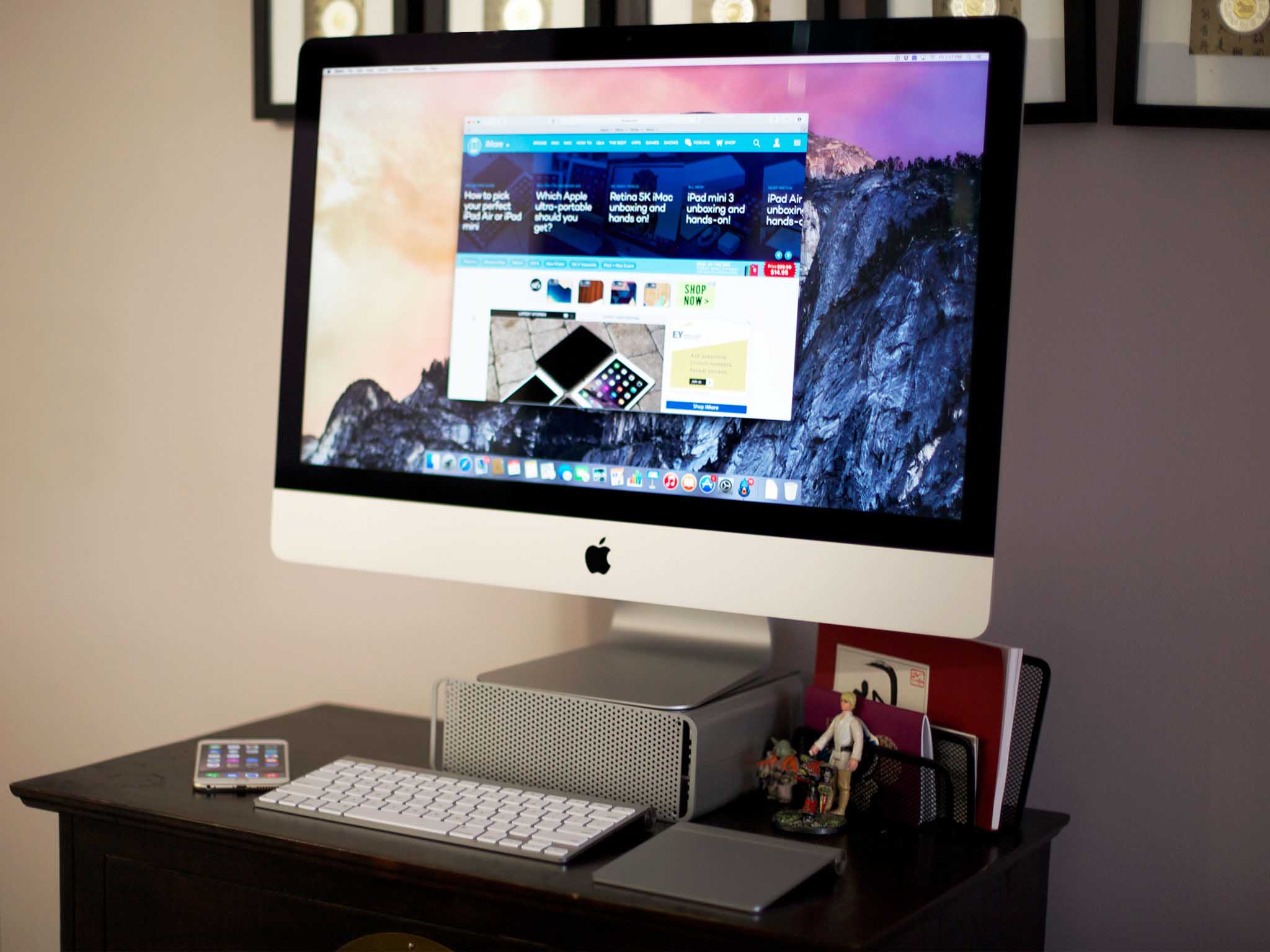
Well, I think it has a bright future. Y'know, despite the industry shrinking, the Mac has gained share for ten years straight. But we've moved up to seven percent share. And so it's not exactly like we're close to a ceiling, despite having really good growth. And in fact we've moved from about five billion in the early 2000s, to 25 billion last year. So we're up five times in revenue in an industry that most people look at as a left for dead kind of thing.
And the reason is we're innovating like crazy in it. We came out with the iMac last year with a 5K Retina display, the world's first. Our notebooks have incredible battery life, they're thin and light, they're powerful, the OS is unbelievable, and so we're continuing to invest here, and we think we've got a bright future.
We also did something really cool with features that we call Continuity features, where we know people live on multiple devices, and we know people want to do things like start an email on your iPad and finish it on your Mac, we know people want to take calls on their Mac. And so we've tried very hard to stitch these things together seamlessly, such that even though one has OS X and one is iOS, they work together as one.
Customers have really responded positively to this, and it's something that, frankly speaking, only Apple can do. We're the only company that has both a desktop operating system — a mainstream, desktop operating system — and a mainstream mobile operating system. There's one company that has a mainstream mobile, the other company has a mainstream desktop, but nobody has both but us. And so we can look at this and give people an experience that's sort of a jaw-dropper, and so we're going to continue to do that.
On Cook's future as CEO
Most of my days at Apple are spent focused on people, strategy, and execution. And I think if you can get those right, then everything else takes care of itself.
And so with people, we've brought on some brilliant people in the last year; Luca [Maestri]'s our new CFO, he's fantastic; Angela Ahrendts came on to run retail and online. We had great talent join us at Beats like Jimmy Iovine, Jimmy's unbelievable. And so we've had a lot of talent influx, and of course there's a lot more names that we don't have time to talk about. And of course, the people at Apple are amazing.
Strategy for us is mostly about products, and what categories we do and don't do, and we spend a lot of time debating that, because we know we need to focus on few things. And so we spend a lot of time there. And of course, as a company operating in the billions of transactions a day and with the volumes we are, execution is critical.
And so that's how I spend my time. So far, things have gone okay.
It's working!
Serenity was formerly the Managing Editor at iMore, and now works for Apple. She's been talking, writing about, and tinkering with Apple products since she was old enough to double-click. In her spare time, she sketches, sings, and in her secret superhero life, plays roller derby. Follow her on Twitter @settern.

